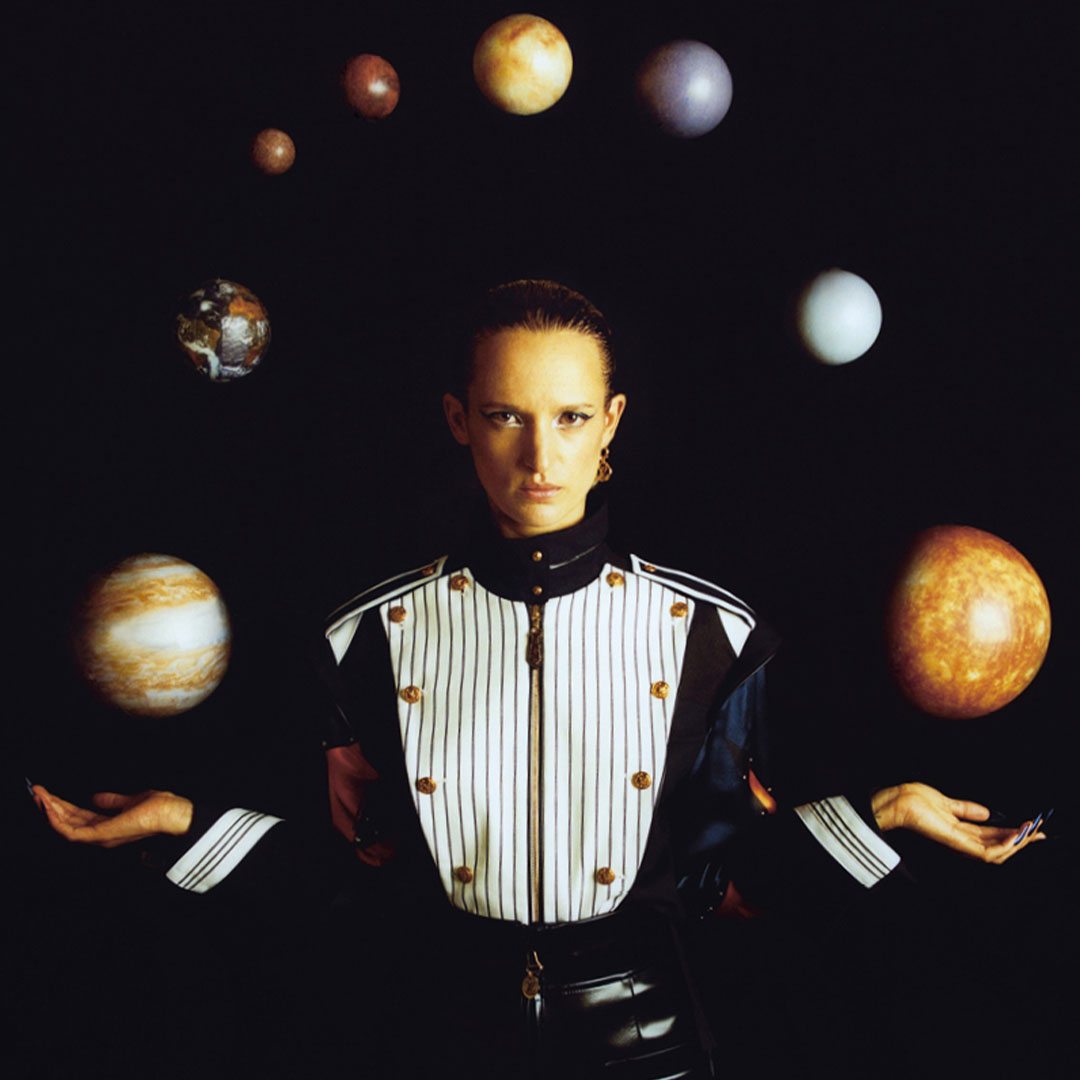
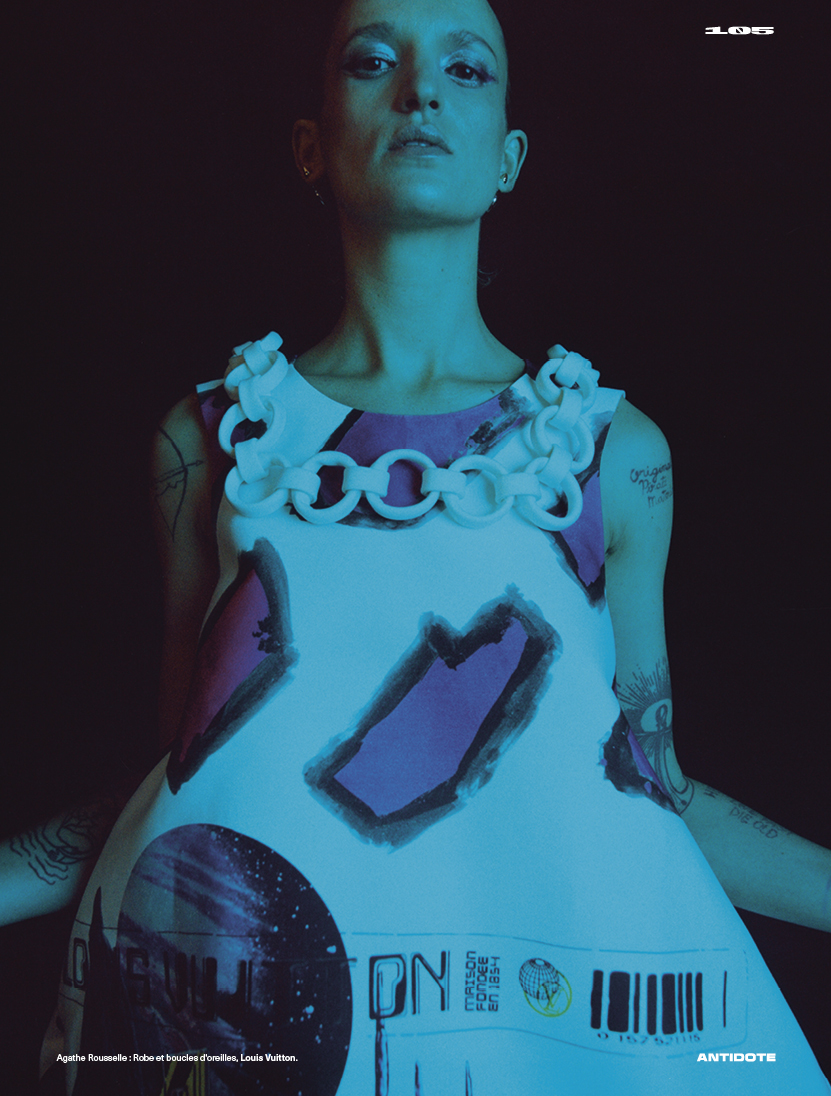 Agathe Rousselle: Dress and earrings, Louis Vuitton.
Agathe Rousselle: Dress and earrings, Louis Vuitton.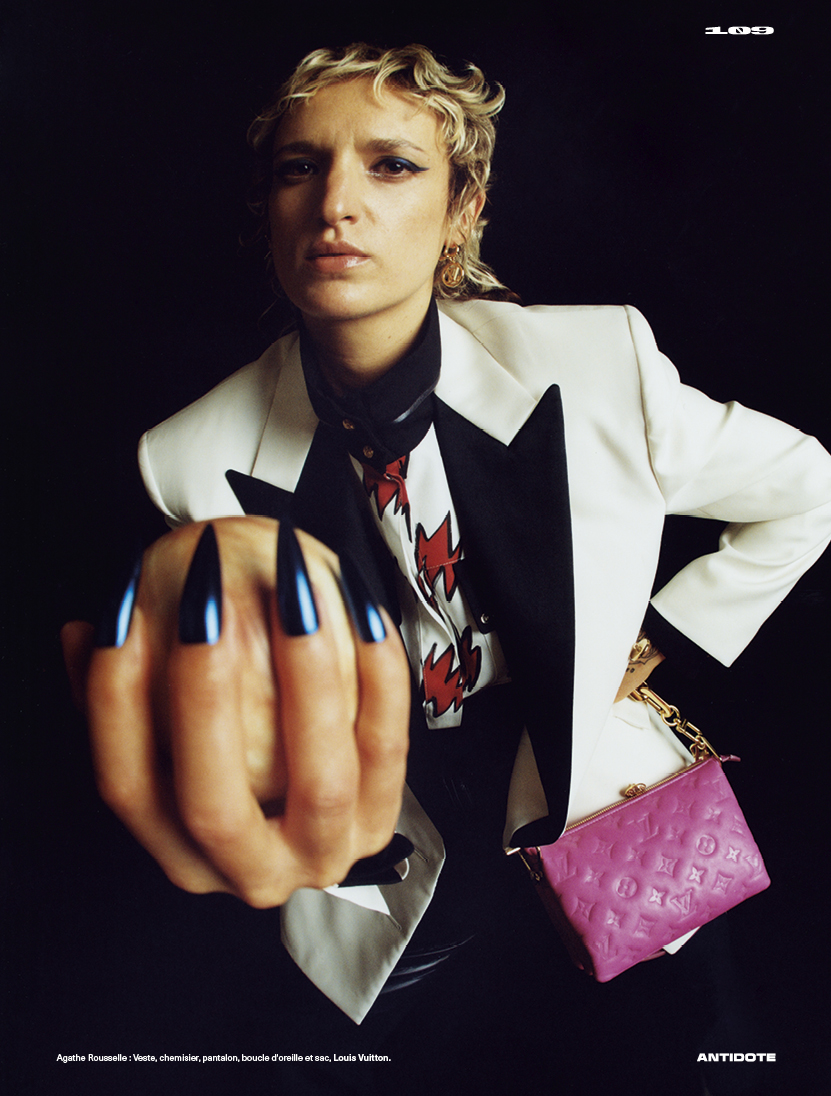 Agathe Rousselle: Jacket, shirt, pants, earrings and bag, Louis Vuitton.
Agathe Rousselle: Jacket, shirt, pants, earrings and bag, Louis Vuitton.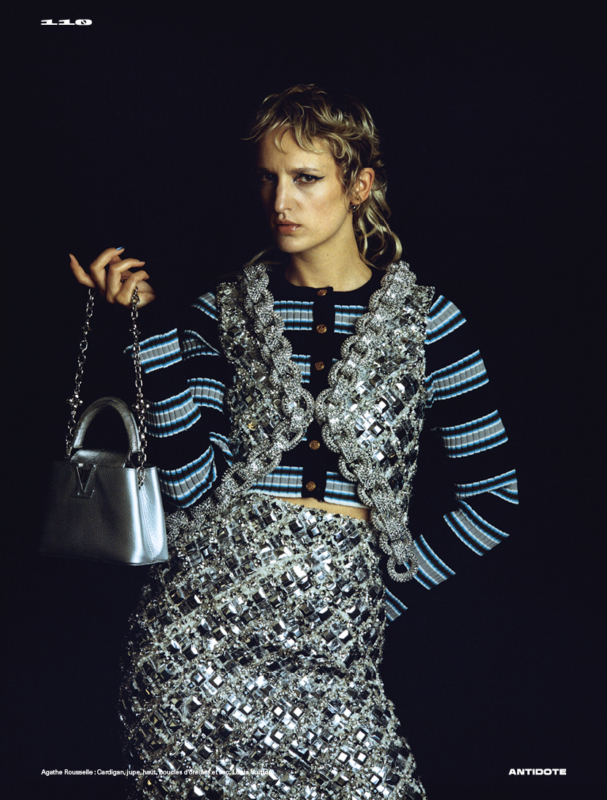 Agathe Rousselle: Cardigan, skirt, top, earring and bag, Louis Vuitton.
Agathe Rousselle: Cardigan, skirt, top, earring and bag, Louis Vuitton.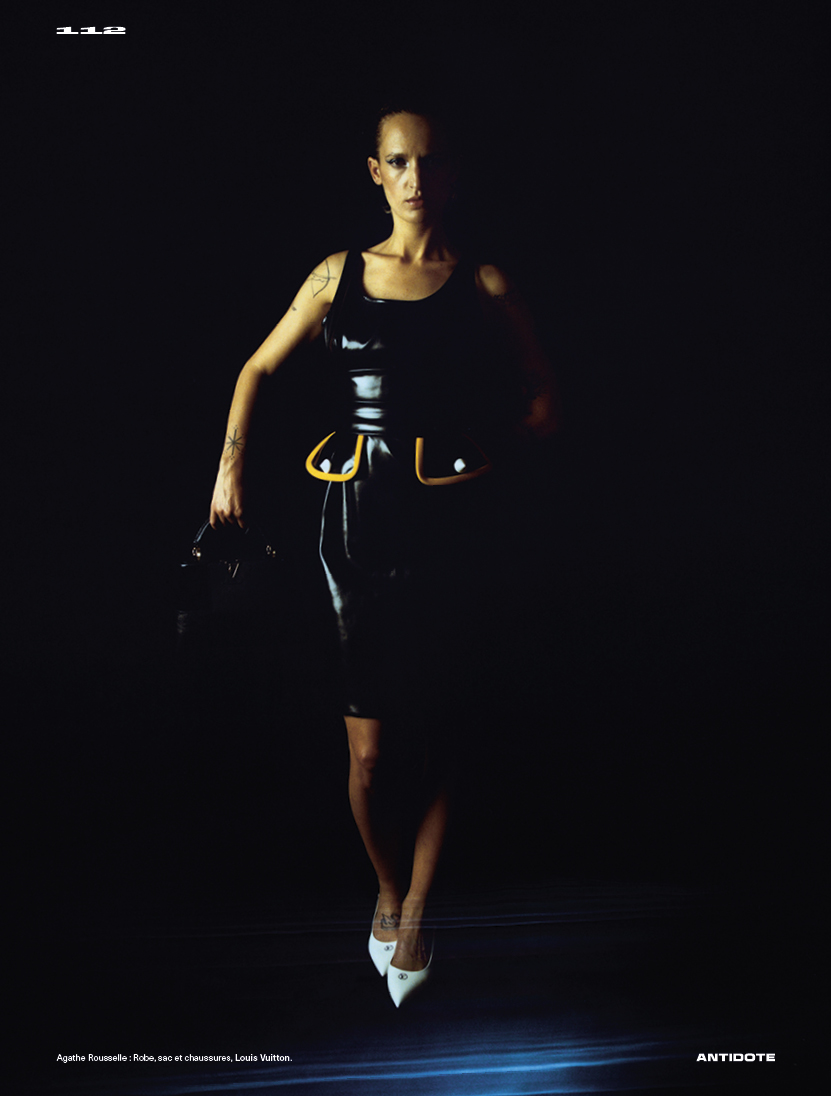 Agathe Rousselle: Dress, bag and shoes, Louis Vuitton.
Agathe Rousselle: Dress, bag and shoes, Louis Vuitton.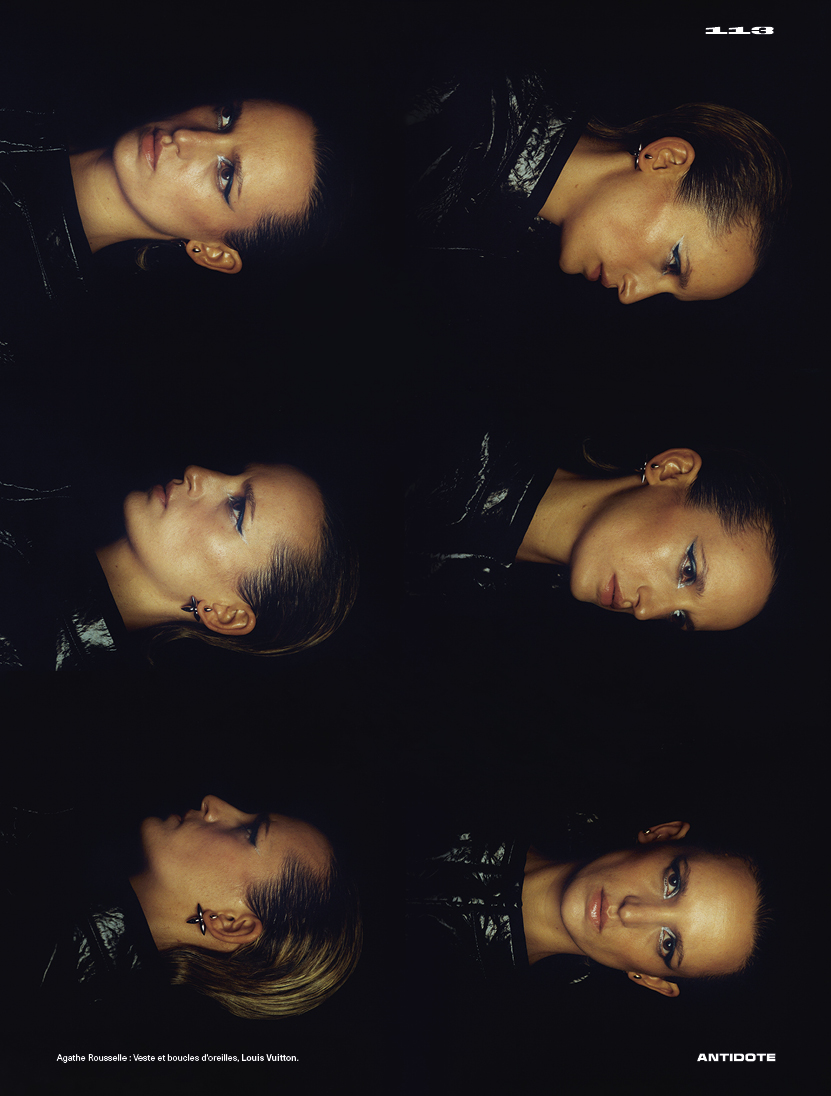 Agathe Rousselle: Jackets et earrings, Louis Vuitton.
Agathe Rousselle: Jackets et earrings, Louis Vuitton.